The struggles of Sayyed Hassan Nasrallah
On September 27, Sayyed Hassan Nasrallah, the secretary general of Hezbollah, a steadfast pillar of the Axis of Resistance, was tragically assassinated in a devastating Israeli airstrike targeting the southern suburbs of Beirut.
This brutal attack struck the Haret Hreik neighborhood, Hezbollah's primary stronghold, resulting in the destruction of numerous residential buildings and leaving hundreds of innocent civilians, including children, feared dead.
In a statement on Saturday, Hezbollah mourned the loss of Nasrallah, honoring him as an outstanding, courageous, wise and insightful leader who has now joined his great and immortal martyred comrades.
The leadership of Hezbollah vowed to honor Nasrallah's legacy by continuing his noble struggle against oppression, supporting Gaza and Palestine and defending the steadfast and honorable people of Lebanon.
In recent weeks, the Israeli regime has escalated its aggression toward Lebanon resulting in the tragic loss of hundreds of lives, including numerous women and children.
The surge in violence follows nearly a year of Hezbollah's operations expressing solidarity with the Palestinian people amid the devastating death toll in Gaza, which has surpassed 41,500
Since the onset of Israel's genocidal assault on the besieged territory, Hezbollah has executed near-daily operations in unwavering support of the Palestinians.
Nasrallah's unyielding commitment to resisting Israeli oppression and his passionate support for the Palestinian cause cemented his status as a beloved and revered figure within the Axis of Resistance.
His legacy of courage and resilience will continue to inspire the movement and the fight for justice in the region.
Sayyed Hassan Nasrallah was born on August 31, 1960 in the eastern suburbs of Beirut, growing up in a modest Shia family and facing displacement to southern Lebanon during his childhood, he encountered significant hardship, yet these challenges only fueled his determination and deep devotion to Islam.
At the young age of 16 in 1975, he embarked on a journey to study theology at Ayatollah Muhammad Baqir al-Sadr's esteemed Seminary in Najaf, Iraq.
Al-Sadr, a prominent Islamic scholar, recognized the exceptional qualities in Nasrallah and famously remarked, "I sense within you the aroma of leadership. You are among the Ansar" [followers of the Mahdi, the last of the 12 Shia Imams].
This acknowledgement served as a guiding light for the young Nasrallah.
In 1979, he joined the Amal Movement, a leading Lebanese Shia political group. However, due to ideological differences, he departed in 1982 to become an integral part of the burgeoning Hezbollah movement.
His exceptional talent and commitment allowed him to rise rapidly through the ranks becoming a key military commander during the tumultuous period of the Israeli occupation of Lebanon in the 1960s.
By 1985, Nasrallah had assumed the role of Deputy Head of Hezbollah, demonstrating his leadership capabilities.
His assent continued as he was promoted to chief executive, a promotion that required him to execute the decisions made by the group's Council, the governing body responsible for strategic planning and policy formulation.
In this vital role, Nasrallah was not only charged with ensuring the effective implementation of their directives, but also with the managing of the day-to-day operations of the organization, his strategic acumen and his ability to lead were instrumental in coordinating the resistance against the Israeli occupation, earning him immense respect and admiration from his fellow fighters and commanders.
Nasrallah’s remarkable career trajectory reflects his unwavering dedication to Hezbollah's mission and values. He emerged as a trusted leader adept at navigating complex political and military landscapes, paving the way for his eventual rise to Secretary General.
This pivotal appointment marked a significant milestone in his illustrious career, setting the stage for his enduring influence in the region.
In 1992, Abbas al-Musawi, a revered Lebanese Shia cleric and co-founder of Hezbollah, tragically lost his life in an assassination carried out by the Israeli regime. Following this pivotal event, Sayyed Hassan Nasrallah stepped into the role of Hezbollah Secretary General on February 16, 1992, a position he would hold with distinction until his martyrdom.
Under Nasrallah's inspiring and effective leadership, Hezbollah blossomed into a formidable political and military force in the region, cultivating a robust base of support among both Lebanon's Muslim and non-Muslim communities.
Immediately upon his appointment, Nasrallah set out to reshape the organization's strategy and tactics, adapting them to the evolving political and military landscape.
His tenure saw Hezbollah orchestrate a series of highly effective operations against Israeli forces in southern Lebanon, purposefully designed to render the occupation increasingly untenable.
The culmination of these efforts came in 2000, when, after nearly two decades of relentless struggle, Israeli forces withdrew from southern Lebanon, marking a monumental victory for Hezbollah and the broader resistance movement in the region.
Nasrallah played a crucial role in this Triumph, leveraging his leadership of Hezbollah's military operations alongside his adept political skills to engage with the Lebanese Government and other regional stakeholders.
In 2004, he further solidified his reputation as a skilled diplomat by negotiating a landmark prisoner exchange between Hezbollah and the Israeli regime, resulting in the release of hundreds of Lebanese and Palestinian prisoners held illegally in Israeli custody.
Nasrallah's leadership during the 33-day Israeli war in 2006 further cemented his reputation as the leader of the resistance, both in Lebanon and throughout the Arab and Islamic world.
Throughout this intense conflict, Hezbollah demonstrated remarkable resilience against the formidable Israeli military onslaught, emerging significantly strengthened and with its reputation, greatly enhanced.
The group's ability to withstand relentless Israeli airstrikes and ground operations, while continuing to launch rockets into Israeli occupied territories, showcased its formidable military capability and unwavering commitment to resisting Zionist occupation. .
Nasrallah played a pivotal role in fostering alliances with key regional players, including Iran and Syria, and in orchestrating coordinated resistance efforts against the Tel Aviv regime.
A staunch supporter of Syria, especially during the foreign-backed war that erupted in 2011, Nasrullah opposed Western backed moves aimed at destabilizing President Bashar al-Assad's government through mercenaries and terrorists.
Hezbollah fighters became actively involved in Syria, aligning with government forces to combat US-backed extremist groups and to prevent the spread of extremism in the region.
The martyr Sayyed Hassan Nasrallah is also renowned for his eloquence and charisma as a public speaker, his speeches have inspired millions across the region, resonating deeply with oppressed peoples worldwide, including the Palestinians.
Despite facing countless assassination attempts and efforts to undermine his leadership, he remained resolute in his commitment to justice and liberation.
His leadership has been crucial in defending Lebanon's sovereignty and dignity, as well as in inspiring a new generation of resistance fighters.
Following the onset of Israel's genocidal war on Gaza in October, he proclaimed the establishment of a front in southern Lebanon to support Palestinian resistance, vowing in numerous addresses that this front would remain steadfast until the devastating conflict in Gaza ended, reaffirming his dedication to the cause.
A true hero of the Axis of Resistance, Sayyed Hassan Nasrallah's legacy will continue to inspire and guide future generations in their struggle for justice and liberation.
His impact on the region and beyond is profound, marking him as a significant figure in the ongoing fight against oppression.
‘Stronger resistance, declining US power’: IRGC marks Gen. Soleimani’s legacy
Harnessing one of world’s largest wind corridors in Iran
Iran denounces US strikes on Venezuela, urges UNSC to stop aggression
UN rights chief urges halt to Israeli plan to legalize execution of Palestinians
Trump claims Venezuelan President Maduro kidnapped, flown out of country
Iran says US assassination of Gen. Soleimani was a cowardly act of terrorism
Ayatollah Khamenei: Enemies behind national currency devaluation
Iran border guards bust terror team, seize firearms in Sistan and Baluchestan


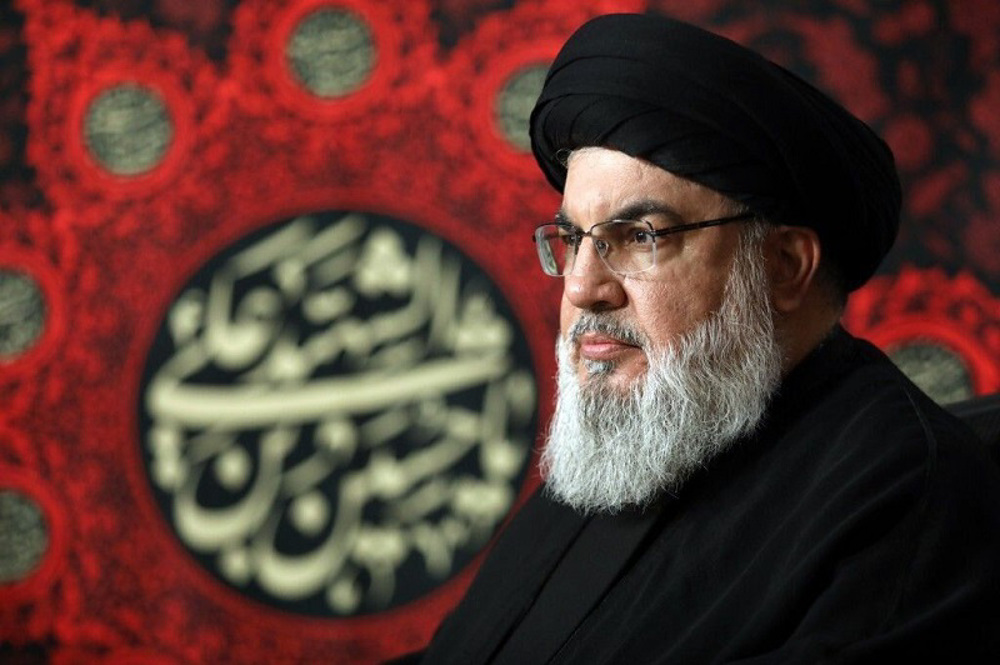
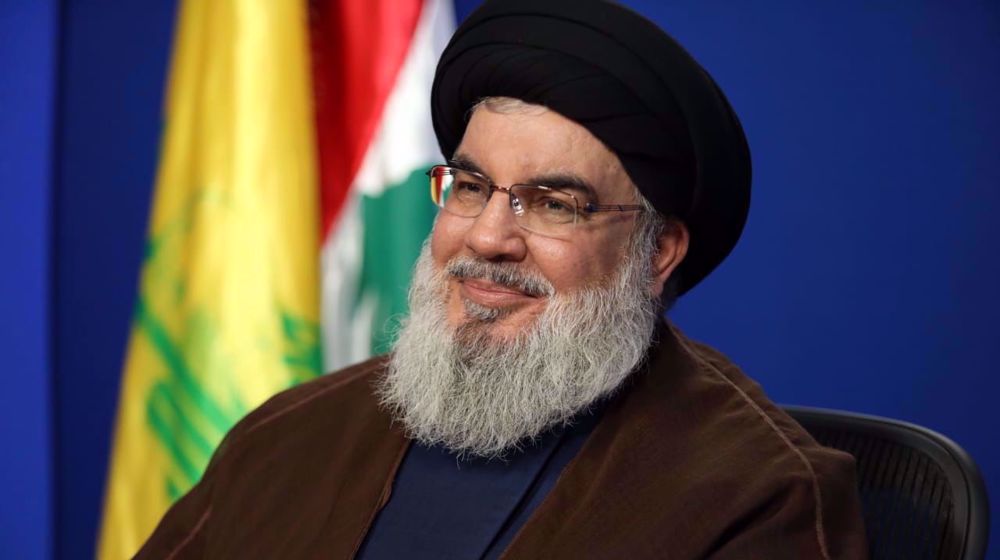
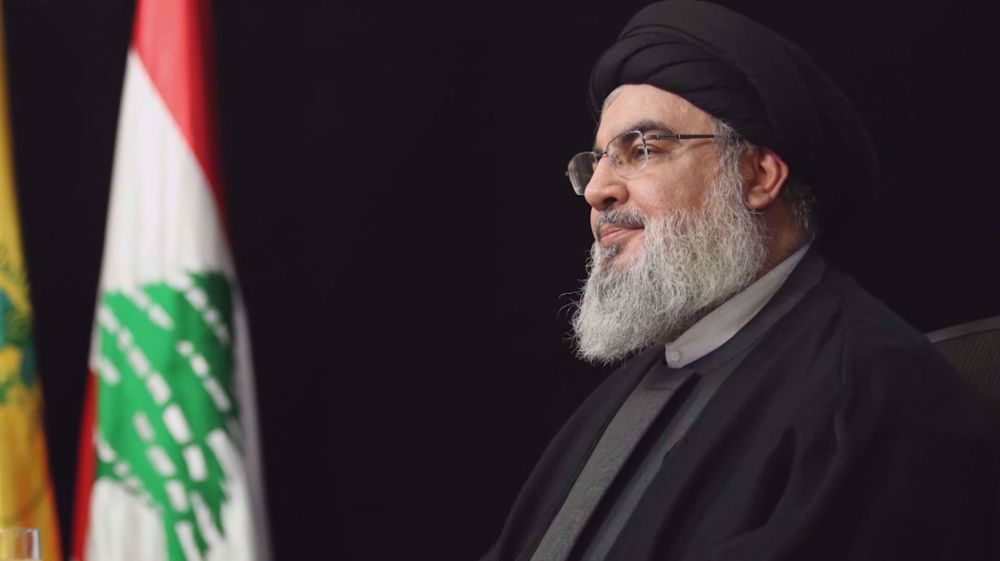
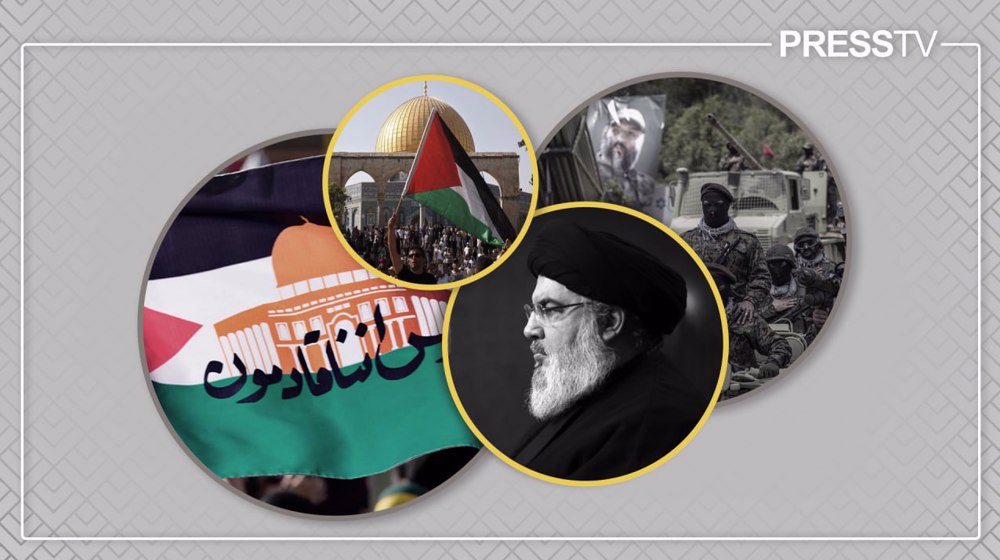

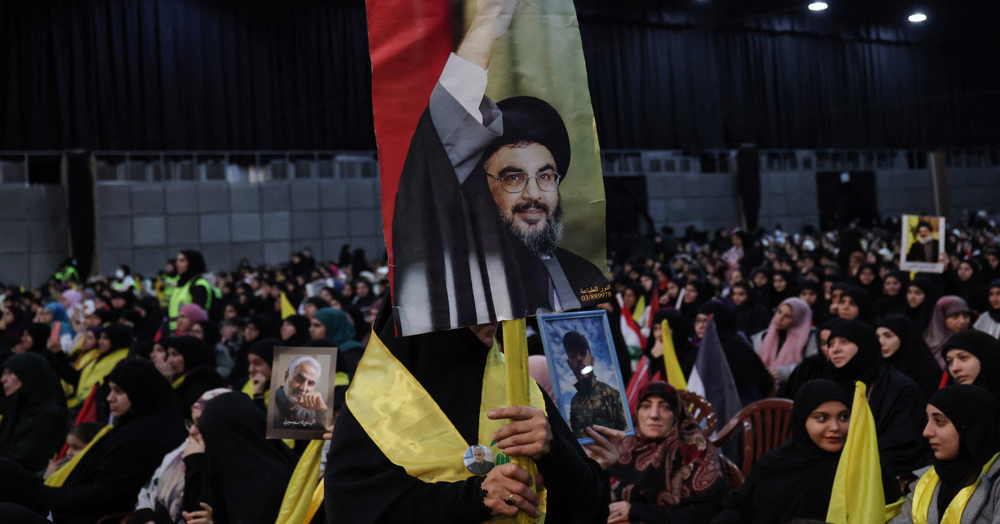
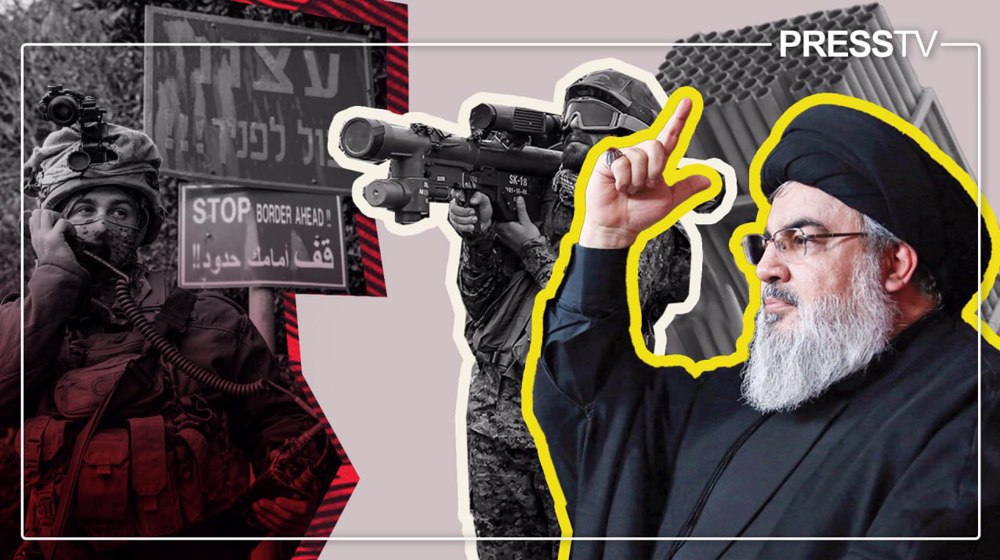
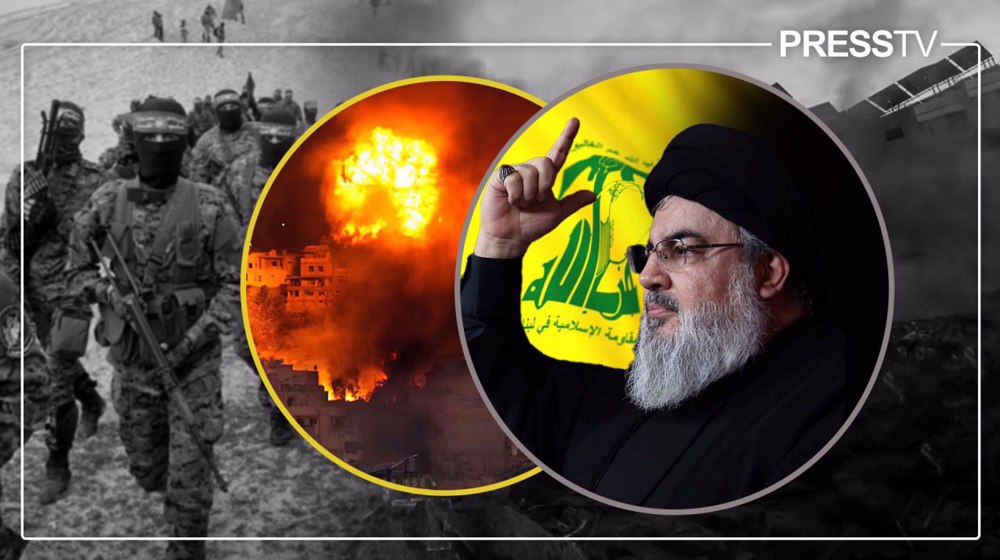
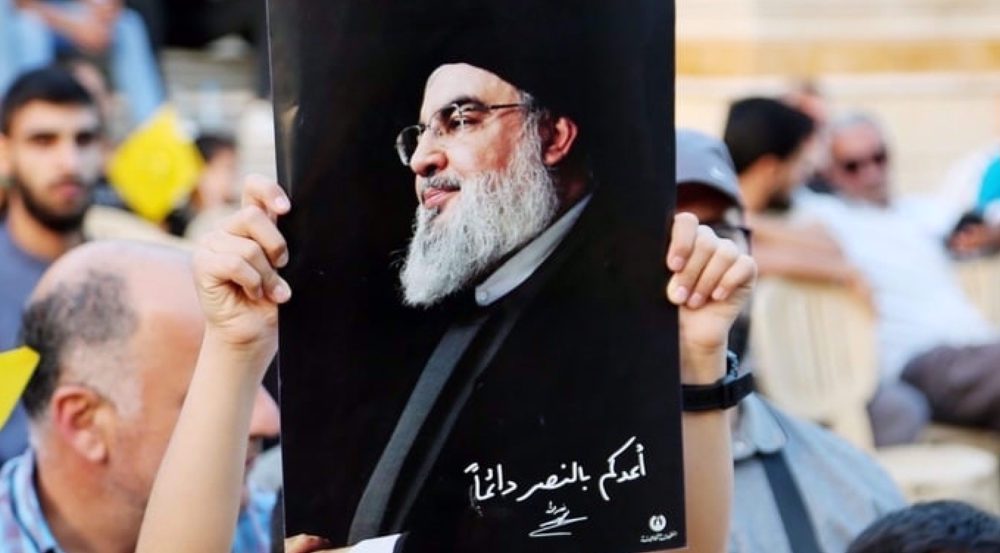
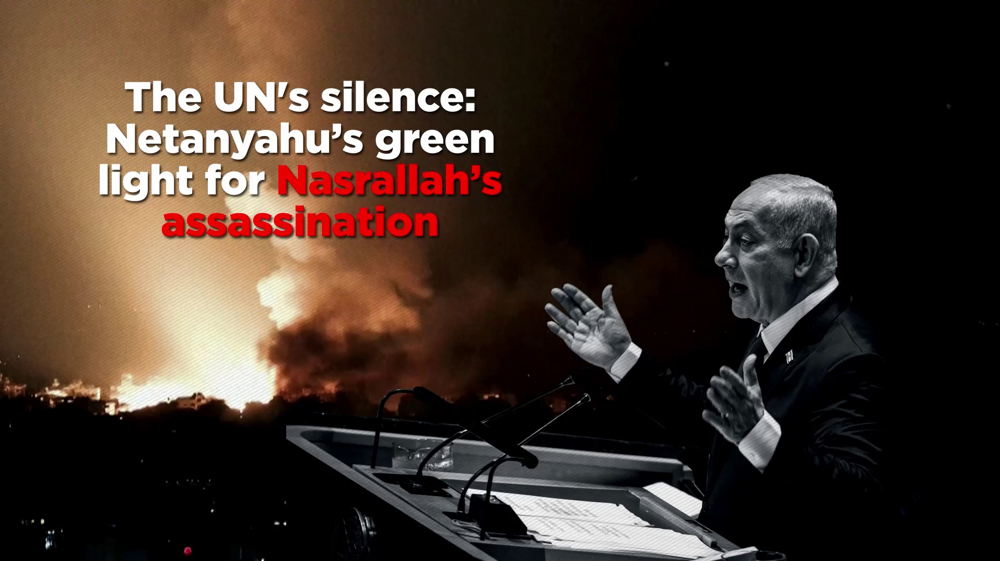

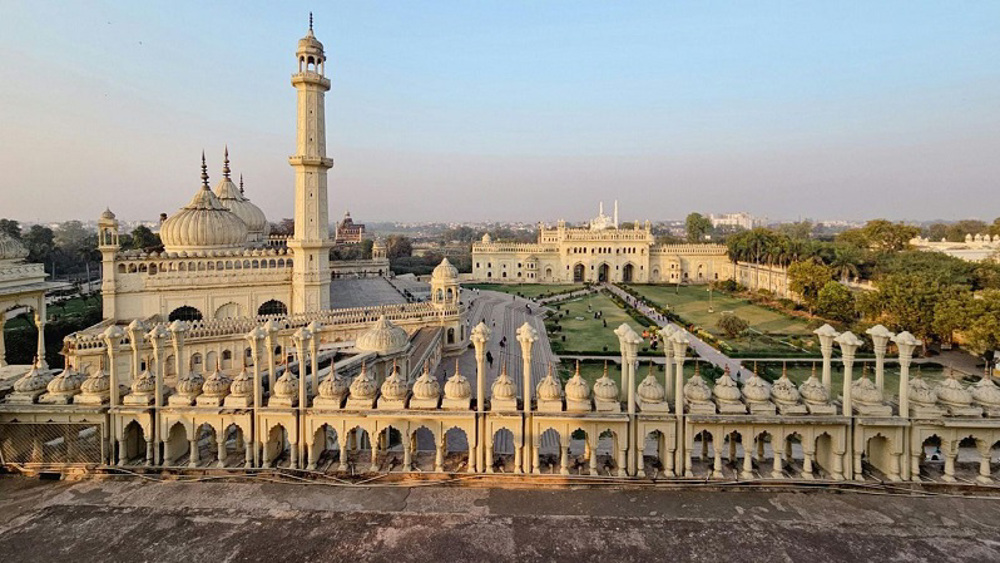
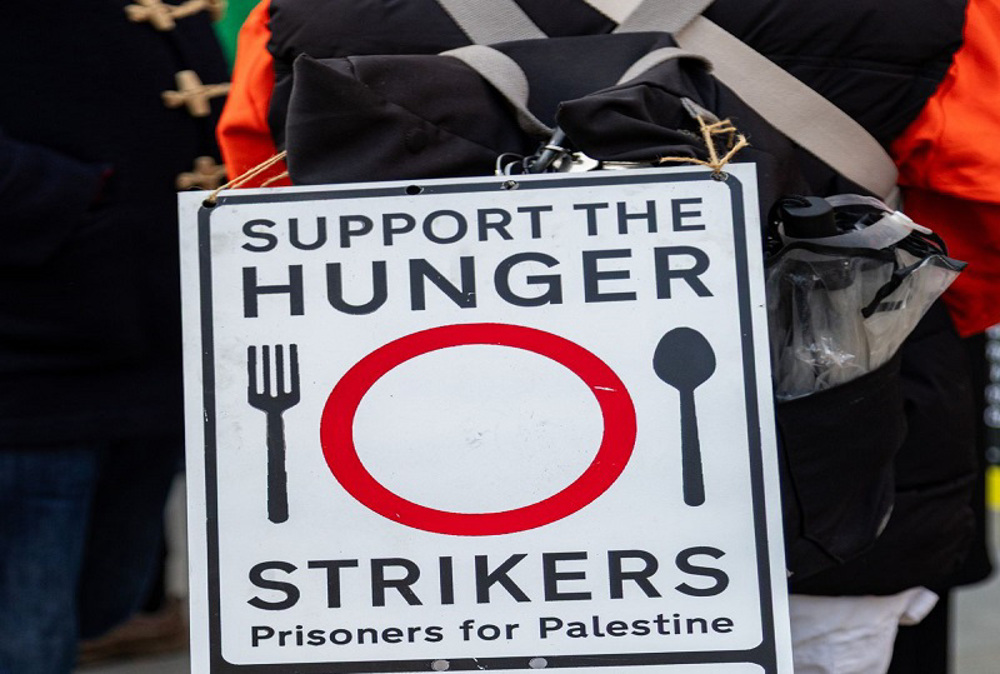



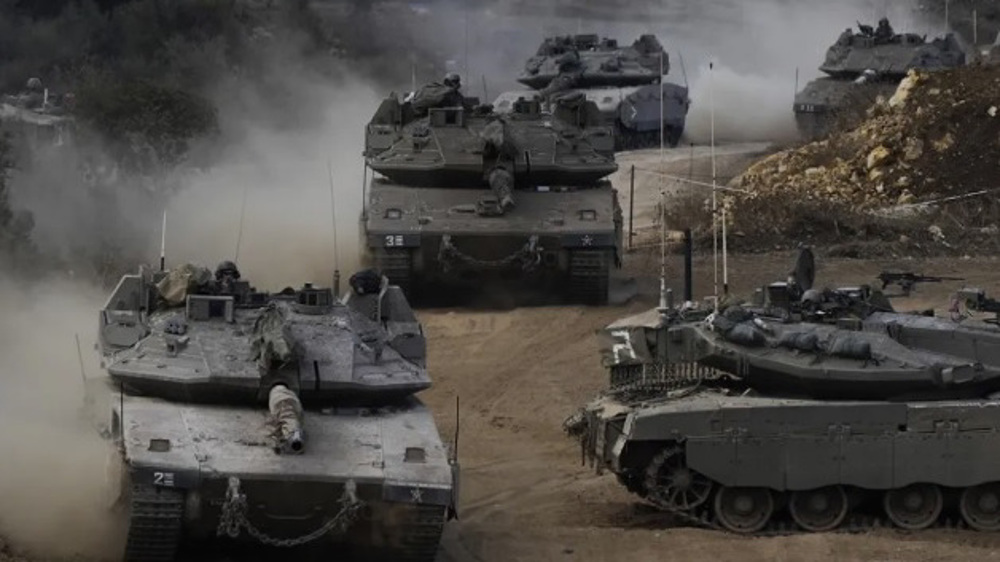

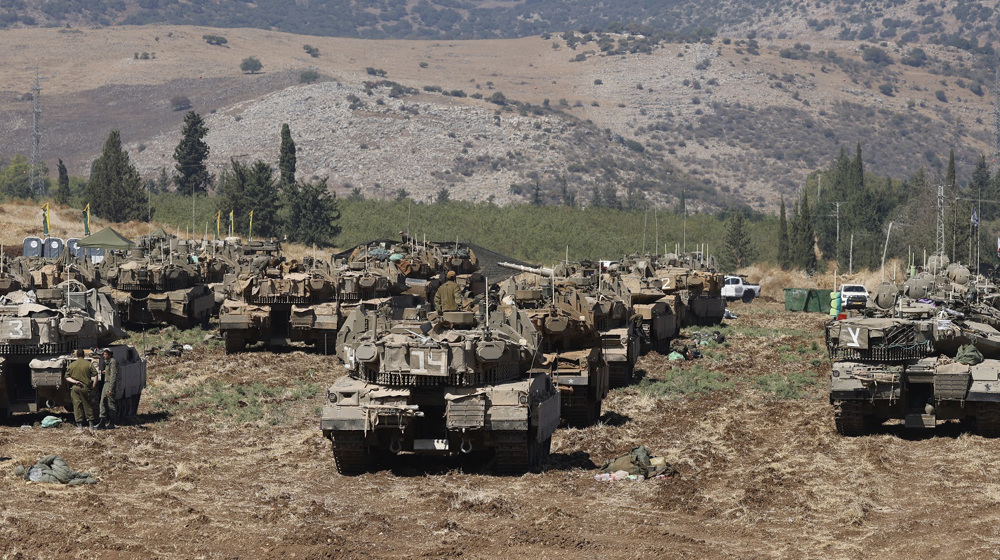
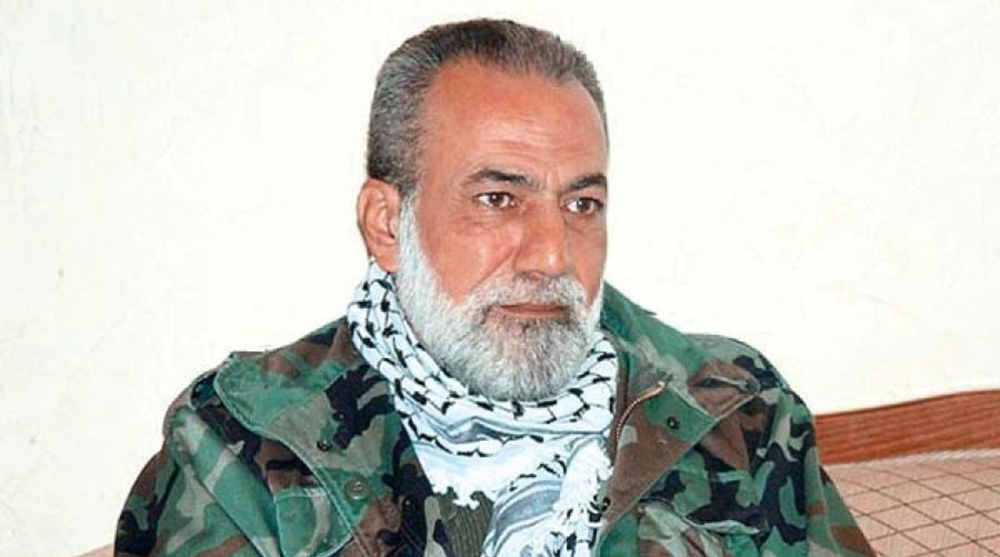
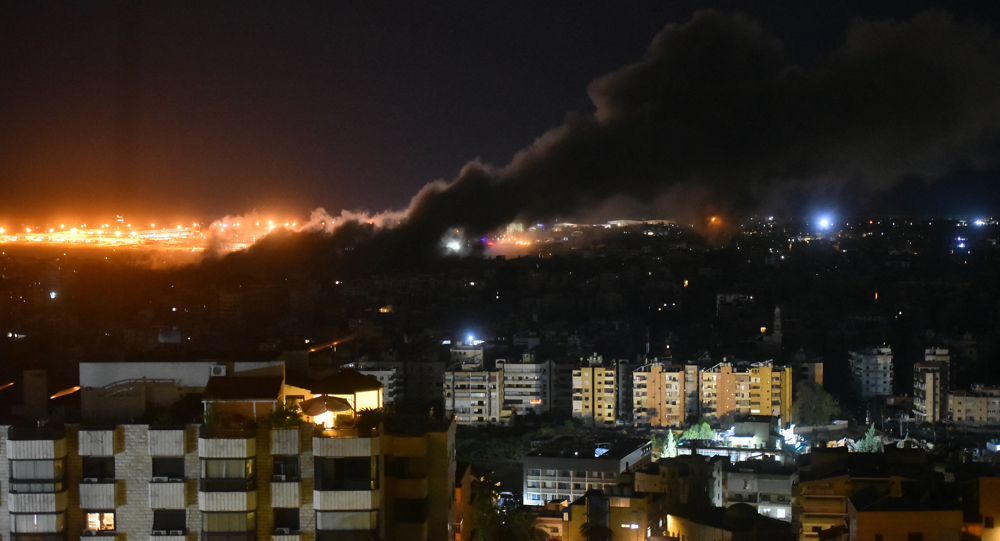
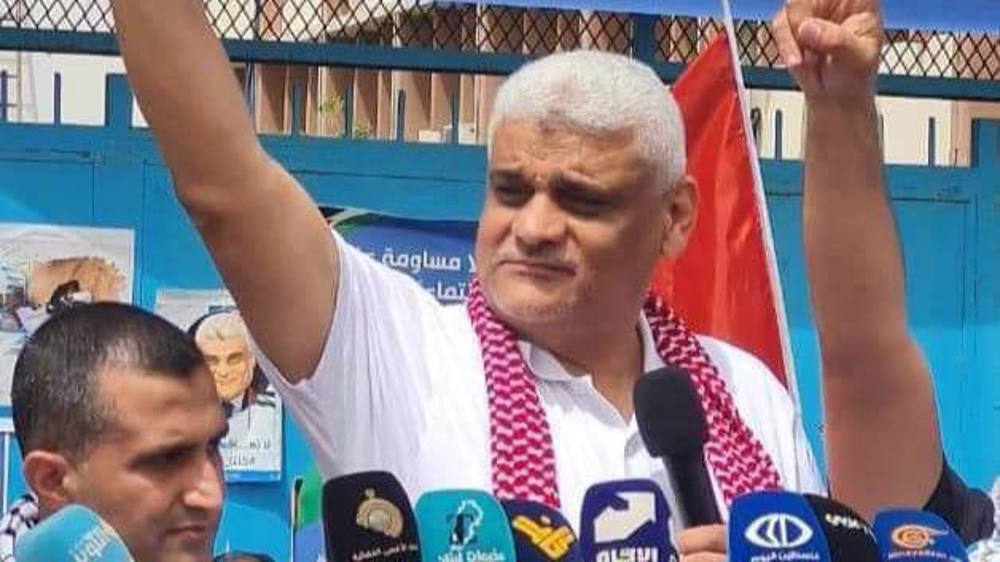
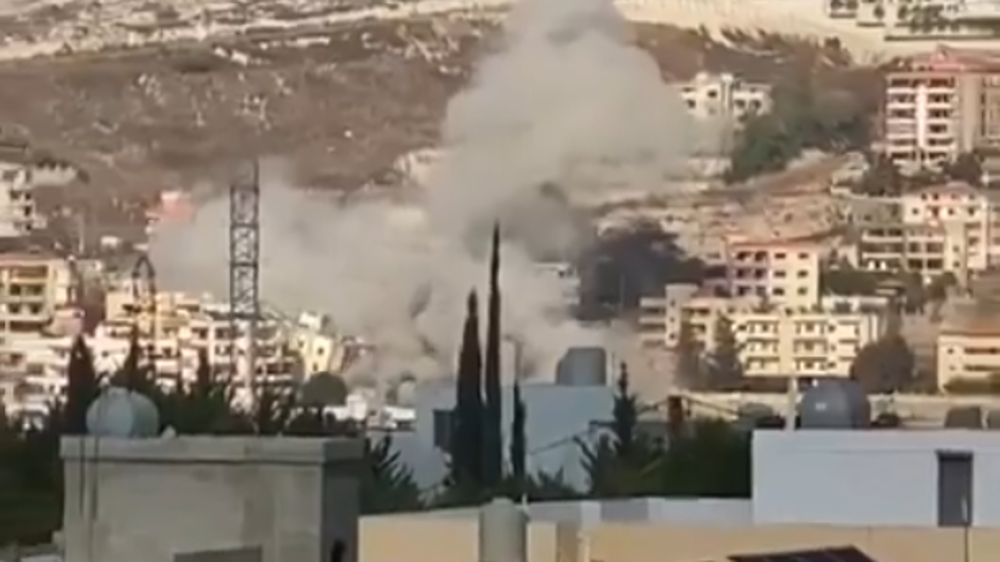
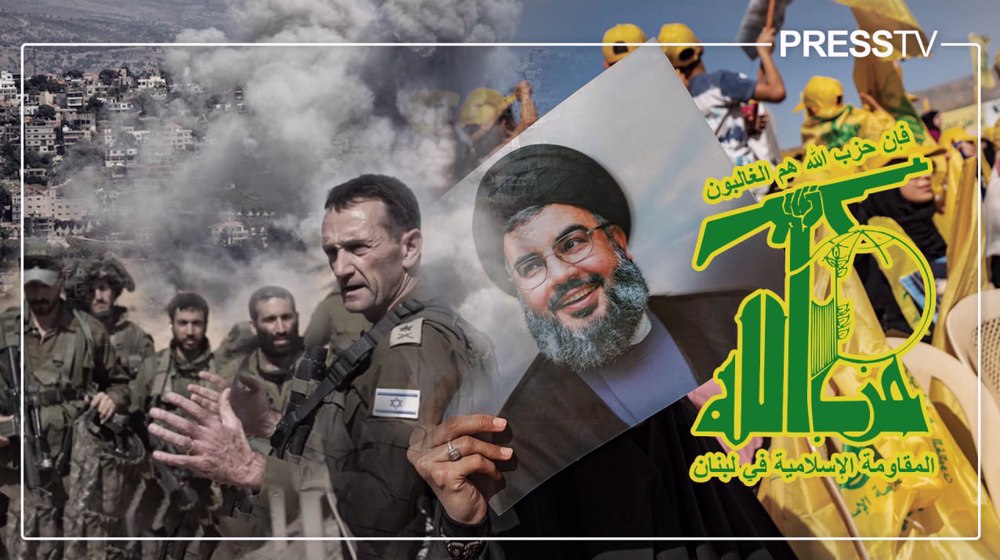
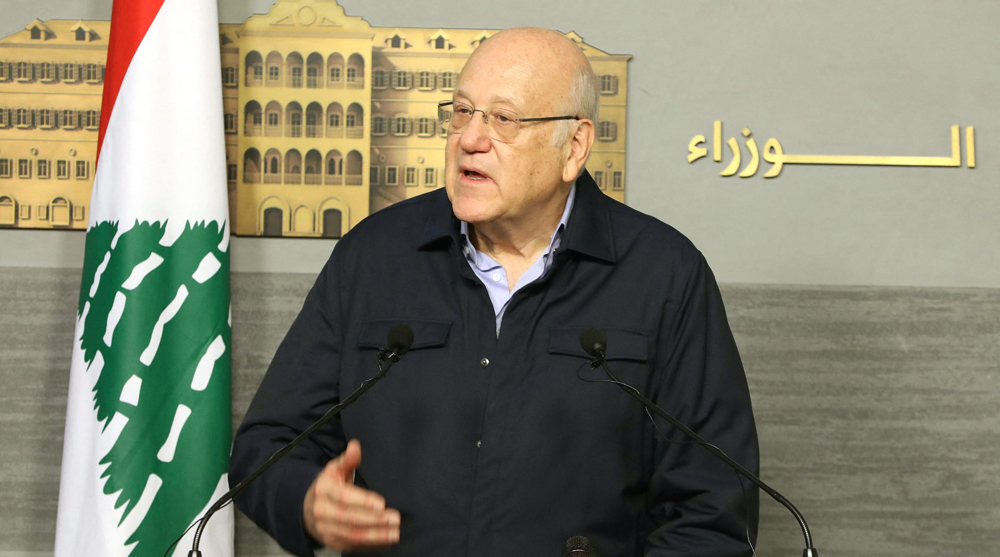
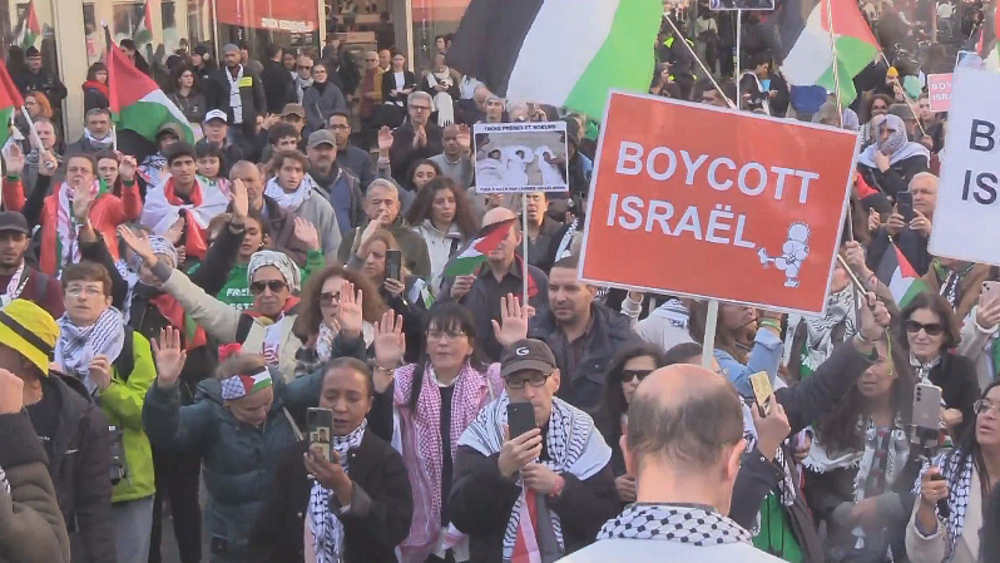

 This makes it easy to access the Press TV website
This makes it easy to access the Press TV website